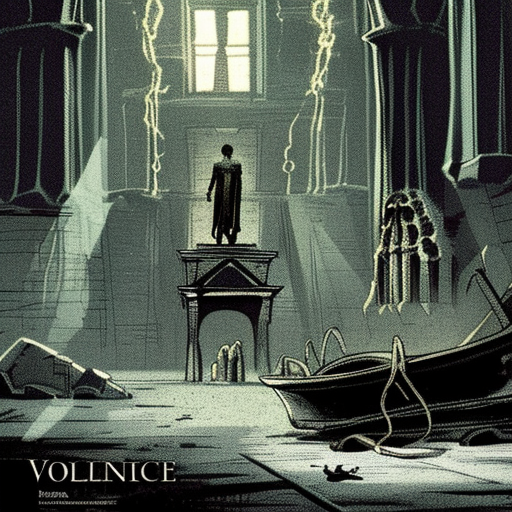Summary:
In Dean Koontz’s Frankenstein, Volume 1: Prodigal Son, a modern-day reimagining of Mary Shelley’s classic novel, Victor Frankenstein is alive and well in New Orleans, where he continues his experiments to create the perfect human. However, his creations, known as “New Race,” are not what he expected. As bodies pile up and a detective named Carson O’Connor gets closer to the truth, Victor’s dark secrets threaten to be exposed.
Victor Frankenstein’s Experiments in New Orleans
Victor Frankenstein, having survived for centuries through his own scientific advancements, has settled in New Orleans under the alias Victor Helios. He continues his experiments to create a superior race of humans, known as the “New Race.” These creations possess enhanced physical abilities and are programmed to follow Victor’s every command. However, Victor’s plans for a utopian society are far from perfect, as his creations begin to display unexpected behaviors and emotions.
Detective Carson O’Connor’s Investigation
Detective Carson O’Connor, along with her partner Michael Maddison, is assigned to investigate a series of gruesome murders in New Orleans. As the body count rises, Carson becomes increasingly suspicious of Victor Helios and his secretive activities. She delves deeper into the case, uncovering a web of deceit and discovering the truth about Victor’s experiments. Carson’s determination to bring the killer to justice puts her in direct conflict with Victor and his creations.
The Battle for Humanity
As Carson gets closer to exposing Victor’s true identity and the extent of his experiments, a battle for humanity ensues. Victor’s creations, led by a particularly cunning and dangerous New Race named Deucalion, rebel against their creator. They seek to break free from Victor’s control and establish their own existence. Carson, Deucalion, and a few unlikely allies must join forces to stop Victor’s reign of terror and prevent the New Race from taking over the world.
Throughout the book, themes of identity, morality, and the consequences of playing God are explored. Victor Frankenstein’s obsession with creating the perfect human raises questions about the limits of scientific advancement and the ethical implications of tampering with nature. The New Race, despite being created by Victor, yearn for their own autonomy and struggle with their own sense of self. The battle between Victor and his creations becomes a battle for the soul of humanity itself.
Key Takeaways:
- Dean Koontz’s Frankenstein, Volume 1: Prodigal Son is a modern-day retelling of Mary Shelley’s classic novel, exploring themes of identity, morality, and the consequences of playing God.
- Victor Frankenstein, now known as Victor Helios, continues his experiments to create the perfect human, but his creations, the New Race, rebel against him.
- Detective Carson O’Connor becomes embroiled in the investigation of the murders linked to Victor’s experiments and must confront her own beliefs and fears.
- The battle for humanity unfolds as Carson, Deucalion, and their allies fight against Victor and his New Race creations.
- The book raises thought-provoking questions about the limits of scientific advancement and the ethical implications of tampering with nature.
“We are not what we were made to be, but what we make ourselves to be.”
In Dean Koontz’s Frankenstein, Volume 1: Prodigal Son, readers are taken on a thrilling journey that combines elements of horror, science fiction, and suspense. The story explores the dark side of human ambition and the consequences of playing God. Through the characters of Victor Frankenstein, Carson O’Connor, and the New Race, Koontz delves into themes of identity, morality, and the power of free will. As the battle for humanity unfolds, readers are left pondering the limits of scientific advancement and the choices we make that define our humanity.












